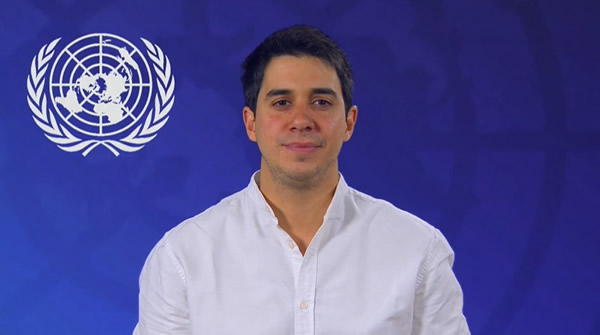
Young people should participate in the reform of the United Nations system to deepen global cooperation and protect their interests, the Assistant Secretary-General of Youth Affairs, Felipe Paullier, has said.
In a keynote address at the African Youth Consultative Forum on the UN Summit of the Future 2024 held in Addis Ababa, Mr. Paullier said the youth must be part of the discussion process in the countdown to the Summit of the Future because multilateralism augurs well for youth inclusion in securing a better future.
Describing the Summit of the Future as an opportunity for transformation in the UN system and the future of the youth, Mr. Paullier said the world needs a different multilateral system because ‘we are not going to be able to address the challenges of our grandchildren if we continue to work with a system that was designed by our grandparents’.
“We need more than ever your voices in this process, we need your voice addressing your governments so that the positions governments take in the Summit of the Future represent the voices of the young people at the country level,” said Mr. Paullier, emphasizing that the Summit was an opportunity to act and foster meaningful engagement by the youth.
“We need to create a mechanism for meaningful engagement and we need to unpack what is meaningful engagement because meaningful youth engagement is about addressing issues that affect young people,” he said, adding, “Meaningful engagement is about how to address the issues of unemployment that affect young people in this region and across the world, we need to unpack meaningful engagement processes to address mental health challenges and to address effectively the climate crisis.”
Mr. Paullier invited the youth to support an open letter recently issued by the Youth Affairs office to global leaders highlighting the need for transformation in multilateralism and the urgency of young people to have meaningful engagement.
“The problem is not in young people, the problem is in the institutions we have. We have 19th-century institutions to respond to the challenges of the 21st century, so we need to transform these institutions and if we do not transform them we are ruined,” he said.
In an open engagement with Mr. Paullier, youths related several challenges they faced that needed to be addressed urgently. Young people expressed concern with high unemployment and limited economic opportunities. In addition, they worried about worsening insecurity in some parts of Africa, growing populist regimes with restrictions on the media and freedom of expression, and the silencing of the voices of young people.
Responding to the concerns raised by the youth, Mr. Paullier said safe spaces for civil engagement of young people were needed and these can come about by having a strong multilateral system that protects human rights.
ECA Director of Strategic Planning, Oversight and Results Division, Said Adejumobi, the world was globalized, and what happens in Europe and elsewhere has an impact on Africa, making collective action and moral responsibility important.
“It is not only in Africa that the civil space is shrinking it is also over the world so the democratic space is shrinking and we are seeing the rise of authoritarianism and authoritarianism is associated with declining civil rights and liberties for people around the world and how can we as young people reclaim that and what is our role in doing so,” he asked.
Speaking on migration, Mr. Adejumobi said Africans needed to engender dignity at home by being allowed to move across borders without restrictions. He said migration has underpinned the socio-economic development of countries all over the world and it must be viewed positively.
“We need to go beyond the criminalization of migration and create a new narrative around that because intra-African migration is almost 70 percent of the migration dynamic in Africa but because of sensationalization; people move more within the continent than outside.”
Source: ECA











